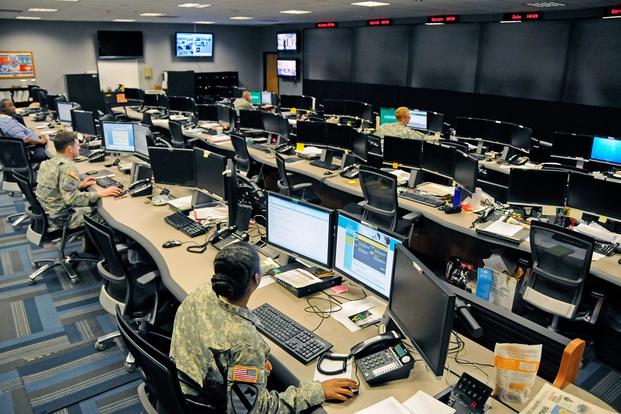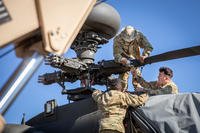As part of the fiscal 2019 defense budget, the Senate Armed Services Committee wants the U.S. to launch offensive cyber attacks in retaliation against Russia or any other country that tries to "significantly disrupt the normal functioning of our democratic society or government."
The language appeared in the committee's newly released conference report of the "John S. McCain National Defense Authorization Act for Fiscal Year 2019" a week after lawmakers on both sides of the aisle criticized President Donald Trump for not taking a hard stance on Russia's interference in the 2016 U.S. presidential elections during his meeting with Russian President Vladimir Putin in Helsinki.
The NDAA "authorizes the National Command Authority to direct U.S. Cyber Command to take appropriate and proportional action through cyberspace to disrupt, defeat, and deter systematic and ongoing attacks by Russia, China, North Korea, and Iran in cyberspace."
"Defense committees have long expressed concern with the lack of an effective strategy and policy for the information domain, including cyberspace and electronic warfare," the document states.
To assist the Defense Department in this challenge, the NDAA "establishes a policy that the United States should employ all instruments of national power, including the use of offensive cyber capabilities, to deter if possible, and respond when necessary, to cyber attacks that target U.S. interests with the intent to cause casualties, significantly disrupt the normal functioning of our democratic society or government, threaten the Armed Forces or the critical infrastructure they rely upon, achieve an effect comparable to an armed attack, or imperil a U.S. vital interest," the document states.
Lawmakers became increasing vocal in their concerns about Russian meddling in U.S. elections after Trump appeared to question his own intelligence agencies' findings on the issue and take Putin's word at the Helsinki summit that Russia had no part in interfering with the 2016 election.
"I have great confidence in my intelligence people, but I will tell you that President Putin was extremely strong and powerful in his denial today," Trump said, according to The Associated Press.
"He just said it's not Russia. I will say this: 'I don't see any reason why it would be,' " Trump said.
He later clarified his comments, saying he told Putin the U.S. won't tolerate any election interference in the future.
"I let him know we can't have this," Trump said, according to an AP report. "We're not going to have it, and that's the way it's going to be."
In addition to the new language, Senate lawmakers increased research and development spending on cyber, and other emerging technologies such as artificial intelligence, hypersonics and directed energy, by more than $600 million, the document states.
If signed by Trump, "the FY19 NDAA will help provide our men and women in uniform the resources and tools they need to face today's increasingly complex and dangerous world," according to a recent Senate Armed Services Committee press release.
-- Matthew Cox can be reached at matthew.cox@military.com.










